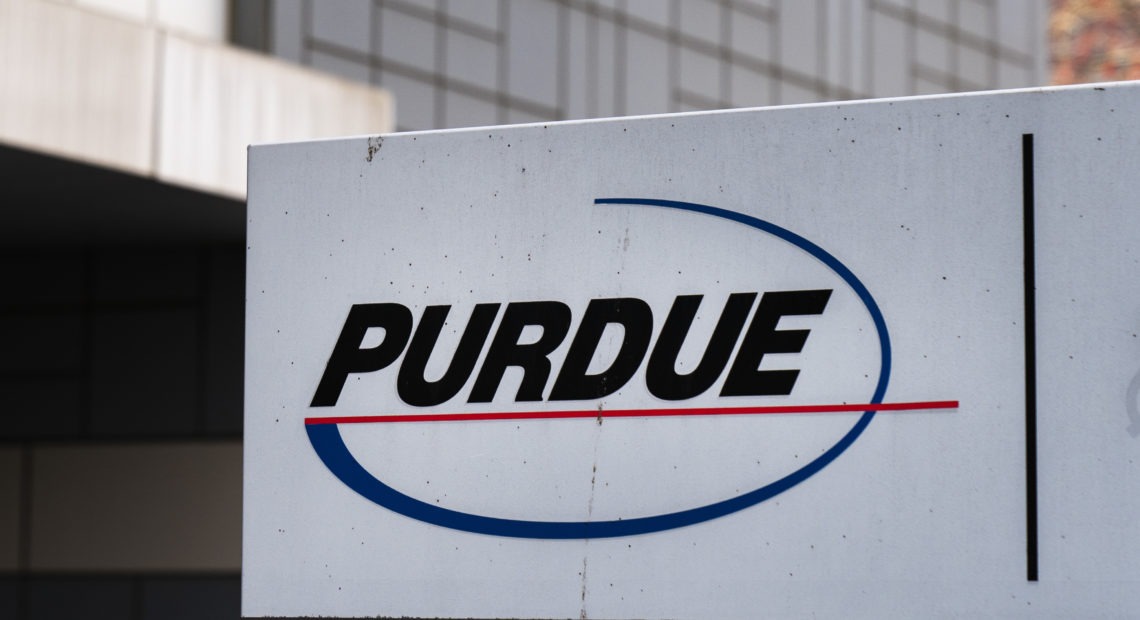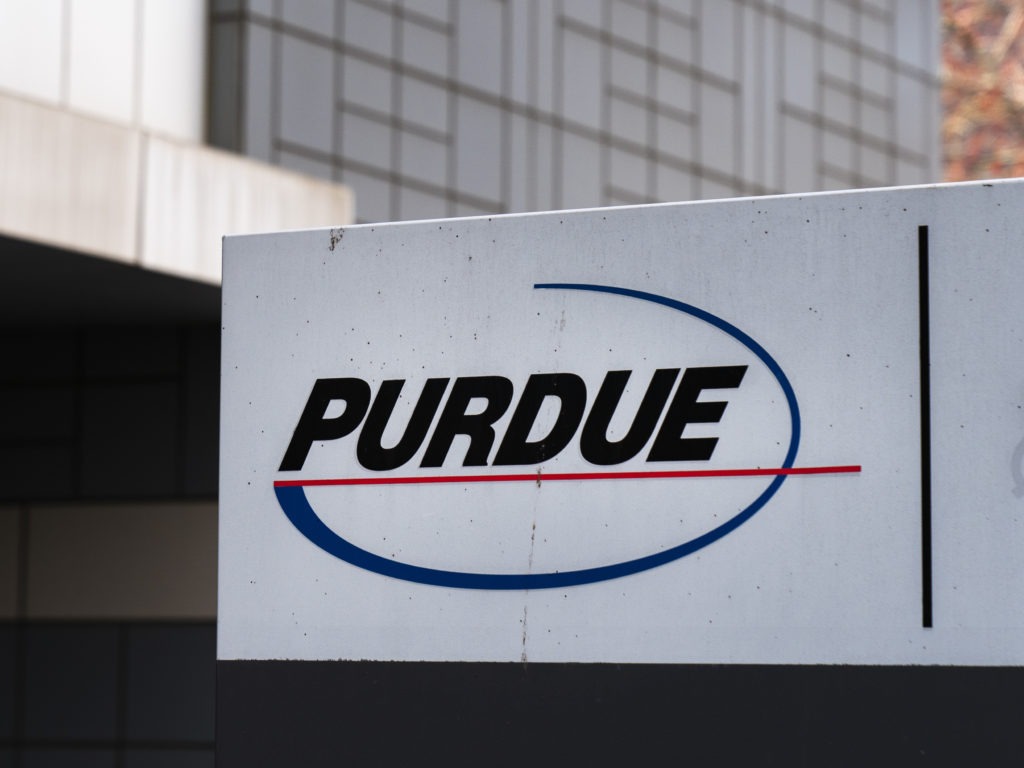
Purdue Pharma Reaches $8B Opioid Deal With Justice Department Over OxyContin Sales
BY BRIAN MANN
The Justice Department announced on Wednesday a global settlement of civil and criminal investigations into Purdue Pharma’s aggressive marketing of opioid medications, including OxyContin.
Federal officials have long maintained Purdue’s actions helped fuel a prescription opioid epidemic that has killed more than 232,000 Americans, according to the Centers for Disease Control and Prevention.
But the deal unveiled Wednesday morning, which includes three felony guilty pleas, won’t result in company officials or members of the Sackler family, who own Purdue Pharma, serving prison time. However, Justice Department officials said this deal doesn’t preclude future criminal prosecutions of individuals involved in Purdue Pharma’s opioid marketing practices. They said those separate investigations are ongoing.

Purdue Pharma headquarters in Stamford, Conn., in 2019. Purdue Pharma, the maker of OxyContin, and its owners, the Sackler family, have faced hundreds of lawsuits over the company’s alleged role in the opioid epidemic that has killed more than 200,000 Americans. CREDIT: Drew Angerer/Getty Images
During a press conference, Deputy Attorney General Jeffrey A. Rosen said the settlement would “redress past wrongs.”
The controversial settlement, valued at more than $8.3 billion, would restructure Purdue Pharma, which entered bankruptcy last year. Going forward, the company would operate as a public trust under government control, continuing to manufacture opioid medications.
The Justice Department also said much of this settlement will help states and communities, providing them with “extraordinary new resources” for treatment of people suffering addiction.
In recent days, critics worked to head off this deal even before it was made public, saying it would entangle the government in a risky drug-making operation without holding the company or its owners accountable.
In a letter sent last week to Attorney General William Barr, 25 state attorneys general urged the Justice Department to “avoid having special ties to an opioid company” that “caused a national crisis.”
Nearly three dozen Democratic members of Congress also sent a letter to Barr last week insisting any resolution of Purdue Pharma’s role in the opioid crisis result in prison time for company owners and executives.
“Purdue and the Sackler family perpetrated one of the most egregious criminal acts in American history,” lawmakers argued in the letter, calling for more aggressive prosecutions.
This deal, if finalized by Judge Robert Drain, the federal bankruptcy judge overseeing Purdue Pharma’s dissolution, will almost certainly derail thousands of separate lawsuits against the company filed by local and state governments.
It could also shelter the personal assets of members of the Sackler family from future liability for their role in the opioid crisis.
New York Attorney General Letitia James sued the Sacklers directly last year.
Her lawsuit claims some family members pocketed billions of dollars in profits over the last two decades, stashing much of it in offshore accounts before the company filed for Chapter 11 protection in 2019.
James responded to the Justice Department’s deal on Wednesday, saying in a written statement that “[w]hile our country continues to recover from the pain and destruction left by the Sacklers’ greed, this family has attempted to evade responsibility and lowball the millions of victims of the opioid crisis. Today’s deal doesn’t account for the hundreds of thousands of deaths or millions of addictions caused by Purdue Pharma and the Sackler family.”
She went on to say that the settlement “allows billionaires to keep their billions without any accounting for how much they really made. From the beginning, we’ve aimed to unearth how much the Sacklers actually profited and how much they continue to hide away. While no amount of money can ever compensate the pain that so many now know, we will continue to litigate our case through the courts to secure every cent we can to limit future opioid addictions. We are committed to holding the Sacklers and others responsible for the role they played in fueling the opioid crisis.”
One other controversial provision of this settlement is the Justice Department’s request to the judge that Purdue and the Sacklers be protected from disclosing some internal information to creditors, including state officials.
First reported by The Wall Street Journal, federal attorneys hope to keep secret disclosures that Purdue Pharma made about company activities to the Justice Department while negotiating this settlement.
That maneuver echoes an earlier deal between Purdue Pharma and the Justice Department reached in 2007.
That settlement — widely considered a missed opportunity by the Justice Department — required the company to pay out roughly $645 million in fines because of illegal opioid marketing practices.
But details of those activities were never made public, and Purdue Pharma quickly resumed its aggressive sales of OxyContin and other highly addictive medications.
Those practices continued for another decade, generating billions of dollars in profits even as overdose deaths skyrocketed.















